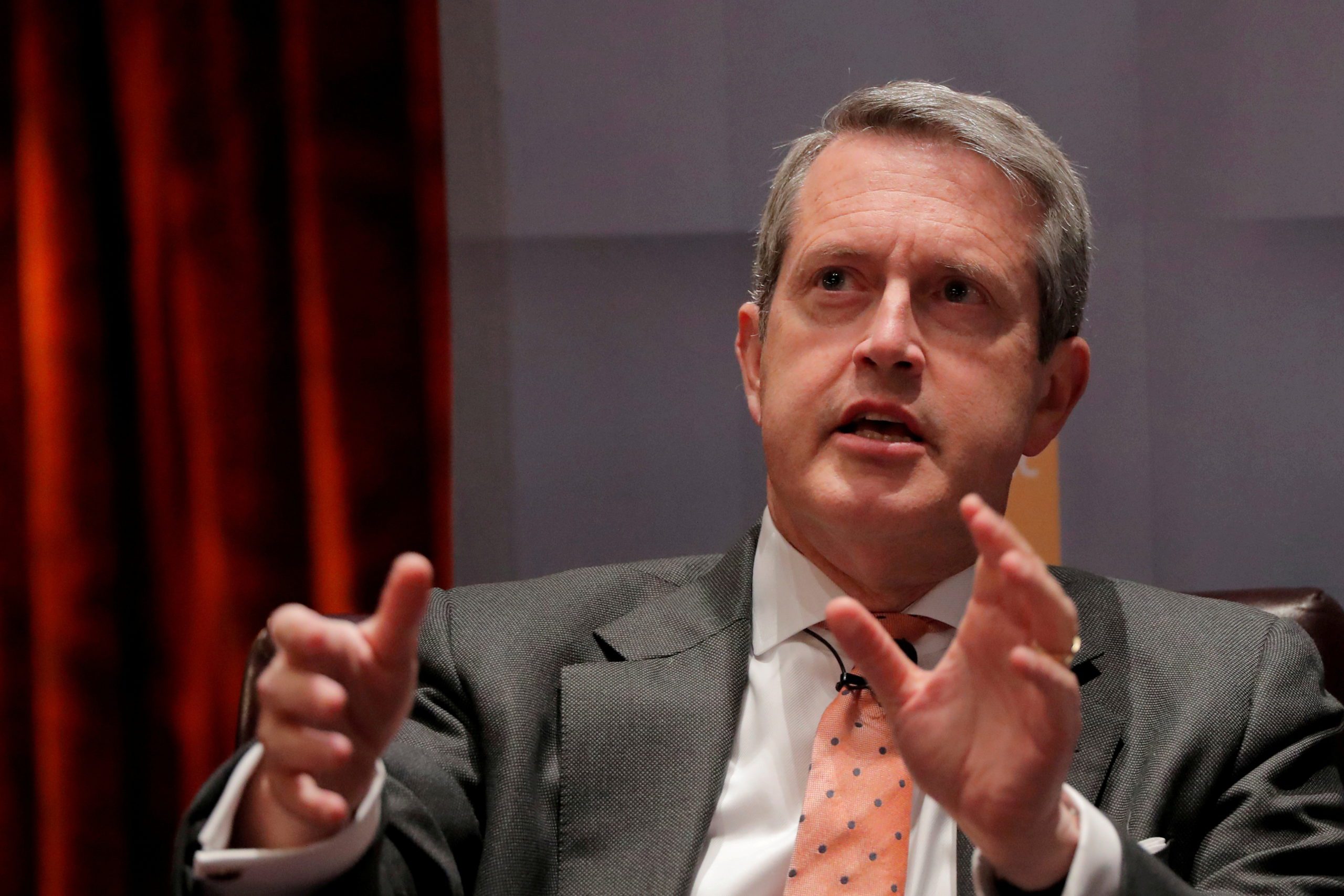
Randal Quarles, the first Trump appointment to the Federal Reserve’s Board of Governors, finished his four-year term as the Vice Chair for Supervision on October 13, 2021. To replace him, President Biden has nominated no one. The Fed replaced him with no one. For now, the Fed’s vital supervisory and regulatory priorities will be managed by the Fed’s Board of Governors, through their committee structure.
There is much to lament with this state of affairs. Quarles was the first to hold the position: it was created in 2010 in the Dodd-Frank Act to encourage the Fed to focus more completely on the vital work of bank regulation and supervision, areas that many feared had become neglected during the Greenspan years. Even though the position was created under a signature law of the Obama administration, that administration did not prioritize the formal appointment, relying instead on Fed Governor Tarullo to manage the portfolio, just as former Fed Governors had done. Today, for reasons known only to the administration itself, if known at all, the Biden administration has been plagued by delays in filling Fed and other financial regulatory vacancies. Even though the Vice Chair’s term is fixed by statute at four years, we still have no insight into the people the administration is even considering to succeed Quarles, as the administration has not even announced an intent to nominate anyone to any position at the Fed.
Quarles, a Republican, pursued a bank regulatory and supervisory agenda with expertise and a clear vision. He is no favorite of some Democrats, who do not endorse his vision, have little use for his expertise, and have been eager to see him depart the scene. Whether the Democrats would prefer it otherwise or not, Quarles is not going anywhere for now. He remains a Fed Governor, with the same important responsibilities over regulatory, supervisory, and monetary policy as his colleagues on the Board. That term is fixed for fourteen years and will not expire until 2032.
Here is the good news. Despite the mishandling of these vacancies from the Biden administration, the Fed’s decision not to reassign these priorities to another Governor is exactly the right thing to do. Its other alternatives are not attractive. It could have given now-Governor Quarles the responsibilities despite the expired term, but his ability to operate without the benefit of his statutory status would be significantly curtailed. The other option is hardly better: the Fed could have given these responsibilities to a candidate more in line with Democratic priorities—Fed Governor Lael Brainard, an expert on virtually every regulatory and supervisory question before the Fed, would fit this bill nicely. But Governor Brainard herself is a candidate to succeed Fed Chair Jay Powell, whose term as Chairman expires in January, and any move to reassign her portfolio could look like meddling in the Fed Chair sweepstakes that is still ongoing.
And so, the Vice Chair for Supervision—that unique creature of governance created by Congress just a decade ago—remains vacant, creating the possibility that financial regulation and supervision will not take their place at the forefront of the Fed’s policymaking. What’s more, the replacement of the Vice Chair position with a committee will devolve more authority to the Fed’s staff to handle this highly political and politicized portfolio.
So why is this good news? Because public oversight of the Federal Reserve System is primarily a product of public governance. We need, as a public, to have rigorous debates about who we want our central bankers to be. One such debate is underway as the Biden administration continues to consider the president’s appointment of the Fed Chair. Those who support Jay Powell, the incumbent, praise his leadership during the 2020 pandemic crisis and his management of a major shift in monetary policy regime. His detractors argue that his regulatory priorities are insufficiently aligned with those of the president, especially around bank regulation, financial stability, and climate change. While the tone of this debate can veer toward hyperbole—an American political tradition as old as the Republic—this is what politics looks like. We should welcome it.
Related Content
What we are not having, however, is that same level of debate around the priorities that the Fed should pursue as a regulator and supervisor. For this debate, we need to have time to consider viable candidates for this position. And we need the Fed not to do this work for us by pretending that the work of bank regulation and supervision has no political content in it.
The position obviously does have political content. The act of regulating and supervising the financial system is almost top to bottom a political exercise. We have elections to let that content and those exercises dictate the course that regulation and supervision should take. Just because the Biden administration has inexplicably dodged its responsibility for sponsoring that debate does not mean that the Fed should skip the debate entirely. By failing to appoint a successor to Quarles, the Fed has turned up the heat on the politicians to give us—the people and institutions affected most by the Fed’s regulatory and supervisory work—the chance to perform our role in vetting the nominees for this job.
Let’s hope the president accepts the Fed’s invitation as quickly as possible.
The Brookings Institution is financed through the support of a diverse array of foundations, corporations, governments, individuals, as well as an endowment. A list of donors can be found in our annual reports published online here. The findings, interpretations, and conclusions in this report are solely those of its author(s) and are not influenced by any donation.

